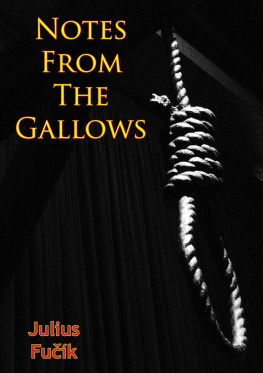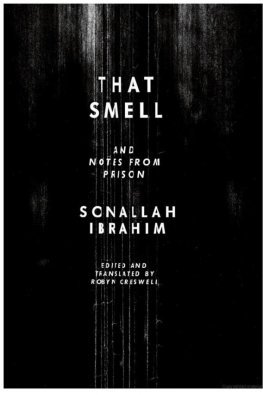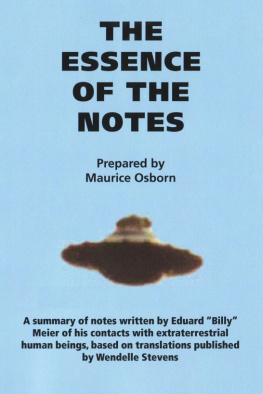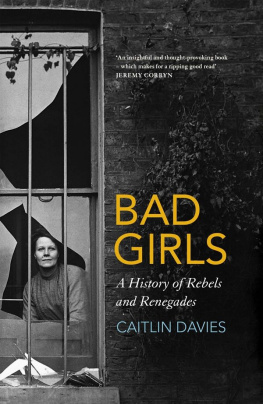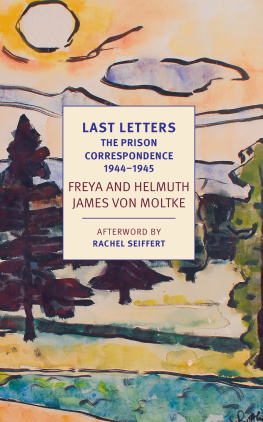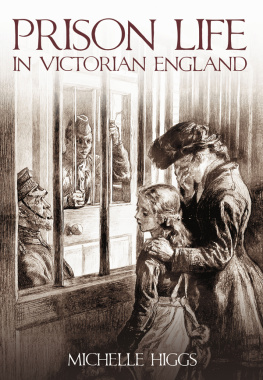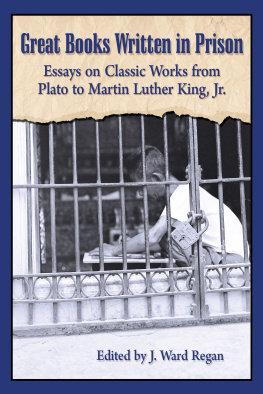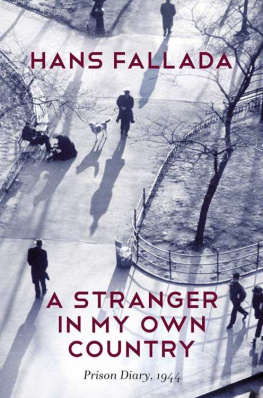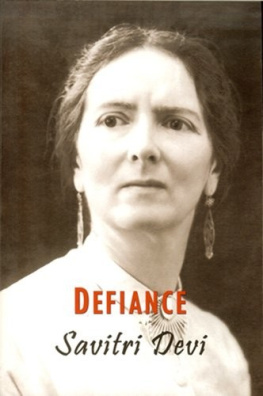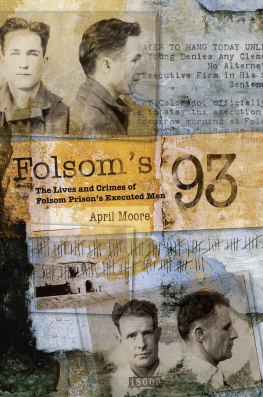

This edition is published by Arcole Publishing www.pp-publishing.com
To join our mailing list for new titles or for issues with our books arcolepublishing@gmail.com
Or on Facebook
Text originally published in 1948 under the same title.
Arcole Publishing 2017, all rights reserved. No part of this publication may be reproduced, stored in a retrieval system or transmitted by any means, electrical, mechanical or otherwise without the written permission of the copyright holder.
Publishers Note
Although in most cases we have retained the Authors original spelling and grammar to authentically reproduce the work of the Author and the original intent of such material, some additional notes and clarifications have been added for the modern readers benefit.
We have also made every effort to include all maps and illustrations of the original edition the limitations of formatting do not allow of including larger maps, we will upload as many of these maps as possible.
NOTES FROM THE GALLOWS
BY
JULIUS FUK
INTRODUCTION BY SAMUEL SILLEN
TABLE OF CONTENTS
Contents
INTRODUCTION
JULIUS FUK wrote this book under the shadow of the Nazi hangmans noose. The very form of the manuscript testifies to the invincible courage and resourcefulness of the author. It consists of pencilled slips of paper smuggled one by one, with the aid of a sympathetic Czech guard, from the Gestapo prison at Pankrats, Prague. Fuk, a man scornful of self-deception, knew he would not live to complete this precarious serial. But he was unyielding in his faith that its happy ending, as he put it, would soon be written by millions of his own countrymen and by antifascists in other lands.
This confidence in the people and in their future is the root theme of the book. True, we find here, as in so much of the wars prison-literature, an ineffaceable image of fascist cruelty. But this is the picture of one who is not merely a victim of fascism, but also its accuser, judge and moral conqueror. Oh, what a crop will rise one day from that frightful seeding, he exclaims. And to Fuk we irresistibly apply the words he chooses to describe a comrade who is always pointing others into the future, when his own future pointed straight toward death.
Fuk was killed by the Gestapo, but the future to which he points in this book is a living reality in his native Czechoslovakia. Indeed, the book itself is the most widely read of all works about the war in that country, and Fuk is celebrated as one of the great national heroes. The book has also been translated into the tongue of virtually every country that played a part in defeating Hitler, including the Soviet Union, Yugoslavia, and France. Of the Soviet Union, Fuk once wrote an admiring book entitled In the Land Where Tomorrow Is Already Yesterday. The future of which he writes in the present book has already taken shape in Czechoslovakia and the other new democracies of Europe.
A journalist, literary critic and Communist leader, Julius Fuk was born on February 23, 1903, in Prague-Smichov. His father was a steel worker as well as an amateur actor and singer. Fuks own activity in the working class movement and in the cultural world of Czechoslovakia began when he was in his early teens. As a student at the University of Prague, he studied literature, music and art. Earning his living as a worker, he joined the Communist Party, wrote for socialist reviews, and became a leading figure in the Communist Students Organization. In 1929 he became editor-in-chief of Tvorba (Creation), which under his leadership was an influential cultural and political review. He subsequently became editor of Rude Pravo , organ of the Communist Party of Czechoslovakia.
Following two visits to the Soviet Union, which he reported to his countrymen as correspondent, lecturer, and editor, Fuk was persecuted and repeatedly imprisoned by Czech reactionaries. At the time of Munich, the Communist press was illegalized, the party driven underground. With the Nazi occupation, Fuk went into hiding. He devoted himself to Marxist literary-historical studies and was at the same time instrumental in organizing illegal headquarters for the Party. With his colleagues he published the underground central organ Rude Pravo (he was its editor), and other publications including the satirical review Trnavecek (The Tiny Whistle).
Of the Communist Party of Czechoslovakia, today the majority party of that country, Fuk writes in this book with pride and devotion. This party, under savage persecution, proved to be an indestructible part of the strength of the Czech working class and the entire nation. At a time when imperialist reactionaries in America, like the Munichmen of Czechoslovakia, seek to smash the vanguard party of our own working class, it is particularly instructive to read Fuks book. Here we see the Communists in their true light as the most determined defenders of the peoples interests. Here we see that genuine friendship with the Soviet Union, the land of socialism, is the prerequisite for the defense of any nation against reaction and fascism. It is as a great Czech patriot, as a staunch son of the Czech working class, that Fuk speaks with respect and love of the Soviet Union.
He was arrested by the Gestapo, tortured, murdered at the age of 40. But in these pages, so magnificently un-labored, so shrewd in observation, so rich in the love of life, Fuk has left an enduring work of literature. And an enduring lessonlet us remember his last line: Be on guard! In real life, he wrote, there are no spectators: you all participate in life. Is not this as true of real literature as it is of life? This book is a noble participation in the continuing fighthow much closer now to our own homes!against the monstrous inhumanities of fascism.
SAMUEL SILLEN
A NOTE
IN THIS CONCENTRATION camp at Ravensbrck I heard from a fellow-prisoner that my husband, Julius Fuk, was condemned to death by a Nazi court in Berlin on August 25, 1943.
Questions about his further fate merely echoed back from the high walls around the camp.
After the defeat of Hitler Germany in May, 1945, prisoners were released whom the fascists had not had time to torture quite to death. I was among those saved.
Returning to my liberated homeland, I searched for my husband, just as others by the thousand searched and searched for their husbands, wives, children, fathers and mothers, who had been dragged off by the German invaders to numberless torture hells.
I learned that he had been executed in Berlin on September 8, 1943, the fourteenth day after his sentence.
I also learned that Julius Fuk had written notes while in Pankrats Prison in Prague. It was a Czech guard, A. Kolinsky, who brought paper and a pencil to his cell and secretly carried away the sheets, one by one. I met that guard and finally collected the notes my husband had written in Pankrats Prison. The numbered sheets came from hiding with various faithful people, and are here presented to the readerthe last chapter of Julius Fuks life work.
AUGUSTINA FUK
PREFACE
SITTING AT ATTENTION, your body rigidly erect, your hands gripping your knees, eyes riveted on the yellowing wall of a room in the former Petchek bank buildingthis is certainly not a position conducive to meditation. But who can force your thoughts to sit at attention?
We shall never know who or when, but someone once called this hall in Petchek building the Cinema. The Germans called it domestic imprisonment, but Cinema was a stroke of genius. The spacious hall contained six long rows of benches, occupied by the rigid bodies of those under investigation. The bare wall before their staring eyes became a screen on which they projected more scenes than have ever been filmed, as they waited to be called to another hearing, to torture, to death. The film of ones whole life or of some minor moment of life, a film of ones mother, wife or children, of ones broken home or ruined life. Films of courageous comradesor of betrayal. The film of the man to whom I gave that anti-Nazi leaflet, of blood which is flowing again, of a firm grip of the hand which held me loyal. Films full of horror or of brave decision, of hate or love, fear and hope. Our backs turned to life, each of us died here daily before his own eyes. But not all were reborn.
Next page
